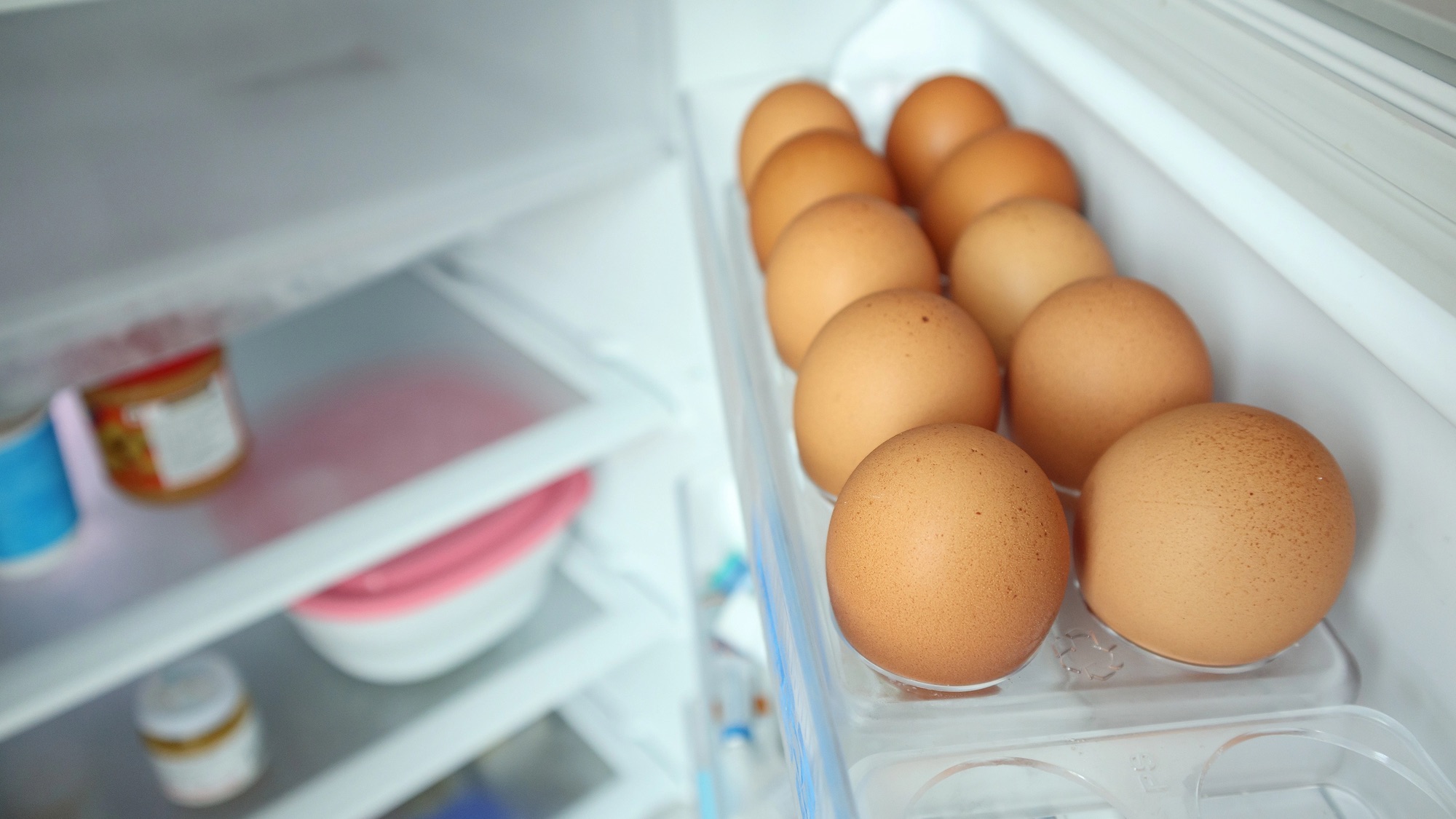Now Reading: Should Eggs Be Refrigerated? Science Says Yes
-
01
Should Eggs Be Refrigerated? Science Says Yes
Should Eggs Be Refrigerated? Science Says Yes

Get the Popular Science daily newsletter💡
Breakthroughs, discoveries, and DIY tips sent every weekday.
Eggs: To refrigerate or not to refrigerate? It’s a question that’s sparked countless Instagram and TikTok videos and plenty of cross-continental confusion.
“Eggs don’t go in the fridge,” some Europeans say with a shrug.
“That’s how you get Salmonella!” cry Americans.
So who’s right? What does science actually say?
Eggshell 101
When a hen lays an egg, it’s coated with a natural protective layer called the cuticle. This thin film is made mostly of glycoproteins, along with small amounts of carbohydrates and fats. Its job is to act as the egg’s first line of defense, helping to block bacteria from passing through the shell. The thickness of the cuticle can vary depending on the hen’s age and breed.
Washing removes the cuticle
In the 1970s, concerns about foodborne illness led US egg producers to adopt egg washing as standard practice. The approach caught on in Canada, Japan, as well as Scandinavia—but not in most of Europe.
Washing eggs before they’re used can help reduce the risk that fecal matter or soil contaminants on the shell enter into the food, Bryan Quoc Le, who holds a PhD in food science and is the author of 150 Food Science Questions Answered, tells Popular Science.
But washing an egg has consequences: It removes the cuticle of the eggshell, Le explains. Once the cuticle is gone, the egg becomes vulnerable to bacterial entry—and must be refrigerated to slow bacterial growth.
[Related: Science says this is the perfect way to boil eggs]
Is it safe to store unwashed eggs outside the fridge?
Theoretically unwashed eggs can be kept unrefrigerated for several weeks without getting contaminated by bacteria, Le said.
But there’s a catch: The cuticle can sometimes be damaged, Le explained. If the protective layer is compromised, bacteria like Salmonella can sneak in.
Deana Jones, who earned her PhD in poultry science and is the center director at the US National Poultry Research Center, recommends storing eggs in the fridge—regardless of whether they are washed or not.
“Salmonella and other foodborne pathogens do not grow well at temperatures below 45°F,” she says. Keeping eggs cold drastically reduces food safety risks.
This matches official guidance from the U.S. Food and Drug Administration (FDA), which advises consumers to store eggs in their original carton in a clean refrigerator set to 40°F or below.

Does refrigeration affect egg quality?
Some people worry that storing eggs in the fridge ruins their quality. But the science says otherwise.
Jones and her colleagues ran a study looking at how egg quality holds up over time under different storage conditions. They found that refrigeration actually preserves quality.
“After 15 weeks of cold storage, refrigerated eggs had yolk quality values greater than room temperature eggs after less than 24 hours of storage.”
What about cooked eggs?
The FDA advises eating hard-cooked eggs—in the shell or peeled—within 1 week after cooking. Leftover egg-based dishes should be refrigerated and eaten within three to four days.
The bottom line
If you live in the US, the eggs you buy at the supermarket are most likely washed and need to be kept in the fridge.
If you’re in a country where eggs are sold unwashed—like much of the European Union—they can be safely stored at room temperature for several weeks if the cuticle is still intact. But that protective barrier can be damaged without you knowing it. So, there’s the risk of spoilage when storing eggs outside the fridge, even if they’re unwashed.
This story is part of Popular Science’s Ask Us Anything series, where we answer your most outlandish, mind-burning questions, from the ordinary to the off-the-wall. Have something you’ve always wanted to know? Ask us.

More deals, reviews, and buying guides
The PopSci team has tested hundreds of products and spent thousands of hours trying to find the best gear and gadgets you can buy.

























